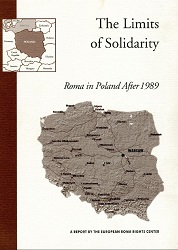
We kindly inform you that, as long as the subject affiliation of our 300.000+ articles is in progress, you might get unsufficient or no results on your third level or second level search. In this case, please broaden your search criteria.

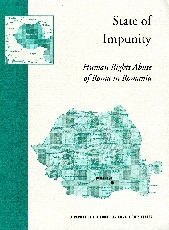
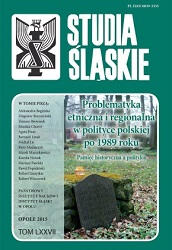
The Upper Silesian Tragedy in 1945 may be analyzed on three levels: as a scientific one, its regional remembrance and as a tool of political competition. The article is devoted to the latter aspect, which analyzes it as an element of competition of the central and regional Polish authorities and the Silesian Autonomy Movement - the main creator of the Silesian nation. The Silesian Autonomy Movement aims to create a separate language and an antagonistic historical memory. Its invoked vision of the history combines mainly the elements of German tradition and the traditions of Upper Silesia with a distance to the Polish threads. However, it lacks of expressive threads and heroic characters, hence the emphasis on the Upper Silesian Tragedy. The commemoration of that event consists of marches and political declarations, led by the resolutions of Upper Silesian assemblies, and the annual days of memory. Polish authorities and environments that accentuate the Soviet crimes, and strive to introduce those commemorations to the national memory, also joined these celebrations.
More...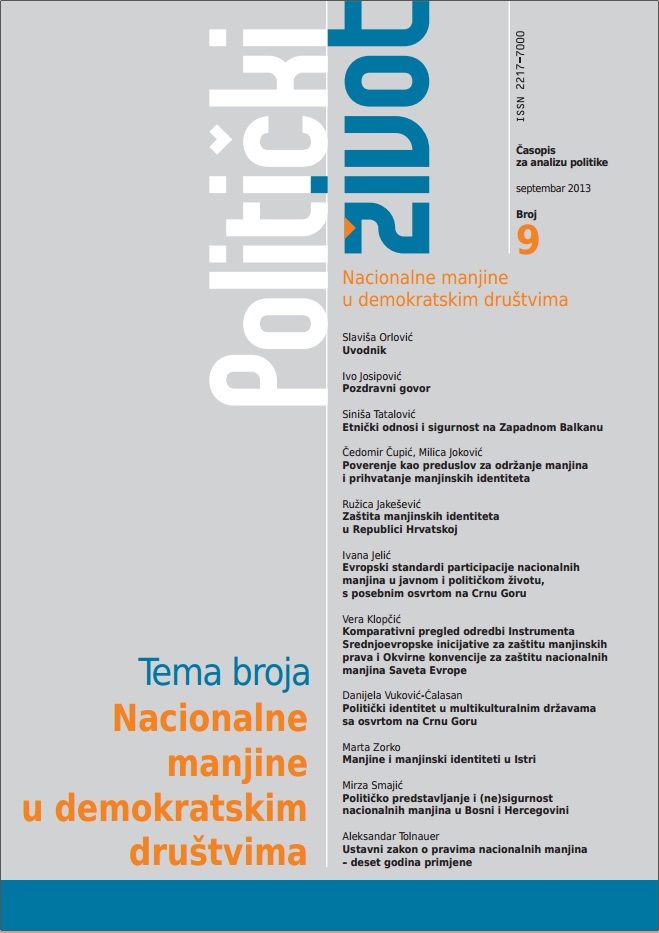
Istria is a very specific region with separate regional identity. It is rather popular to emphasize its multiculturalism embedded in ethnical diversity and contribution of minorities. With population census analysis it could be easily seen that this kind of separate identity exists but it is not primarily related to identities of national or ethnical minorities in Istria County. It has been proven that Istrianity is sub-national, but not minority related identity in this Croatian county.
More...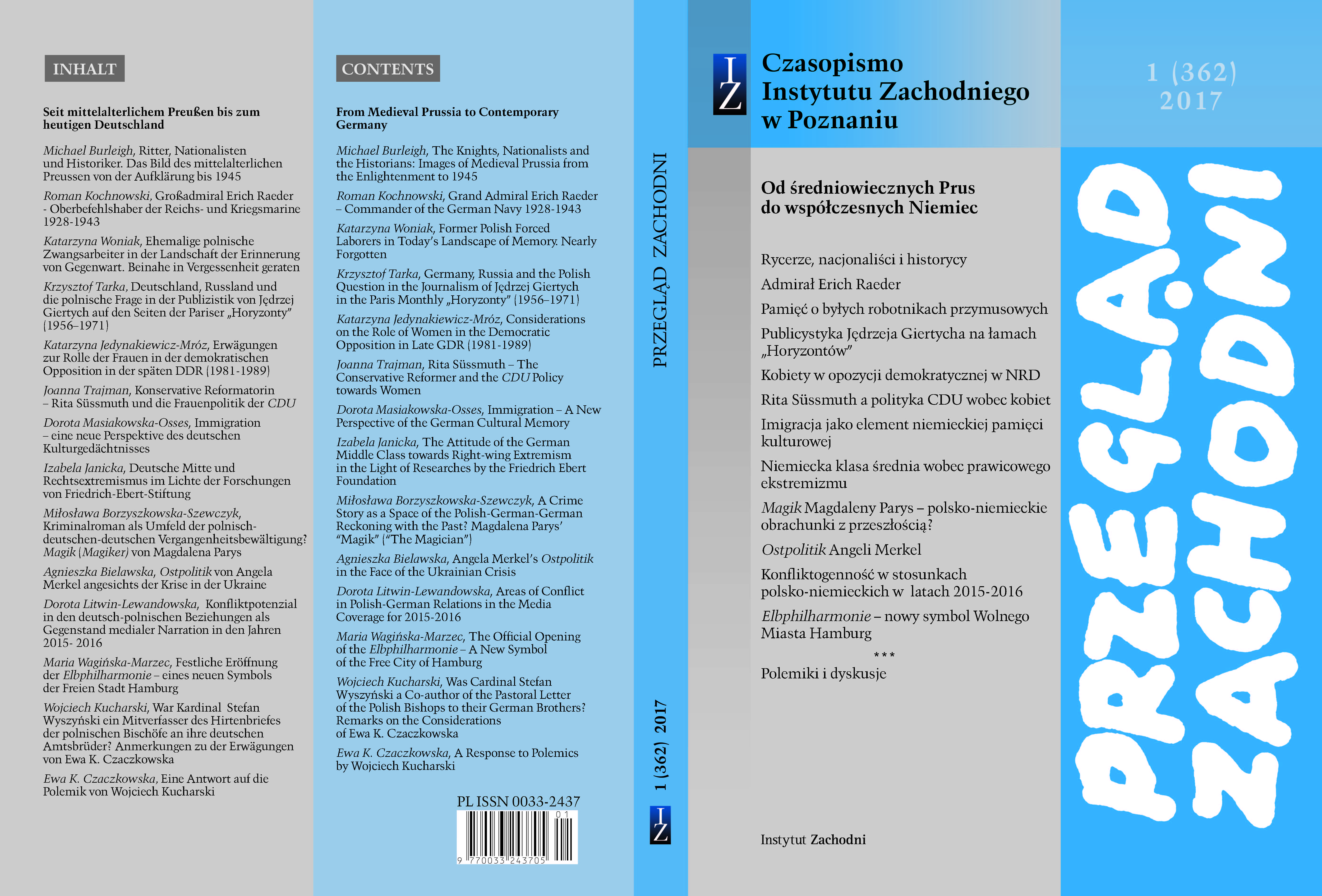
This article aims to deepen the analysis of the status of ethnopolitics in Eastern European countries - Belarus, Lithuania, Ukraine and Moldova. In the first part of the discussion the author explores the concept of "ethnopolitics", indicating that it pertains to the relationship between ethnicity and politics. Showing the main objectives of ethnic policy she states that they can be classified into two groups: 1) concerning inter-ethnic relations; 2) targeted to specific entities (ethnic groups and the state in which they reside). Later in the article the author examines the ethno policy in the region, in practice, revealing its conditions and determinants at an intra-state and international level. It indicates the current balance of ethnic policies of selected countries in the region, the potential development of these policies. In the final part of the study she notes that in the discussions on the role of ethnopolitics in the countries and in the regions, there are voices that ethnic policy in Eastern Europe is an extremely important element of the basic functions of the states and the region, including the central phenomenon of the construction, reconstruction and strengthening of national identity. What is particularly important, ethnopolitics, understood in terms of public policy addressed to national and ethnic minorities living in the country, it is an important backbone of domestic and foreign policy, and the political and cultural identity of all ethnically and culturally heterogeneous countries of Eastern Europe.
More...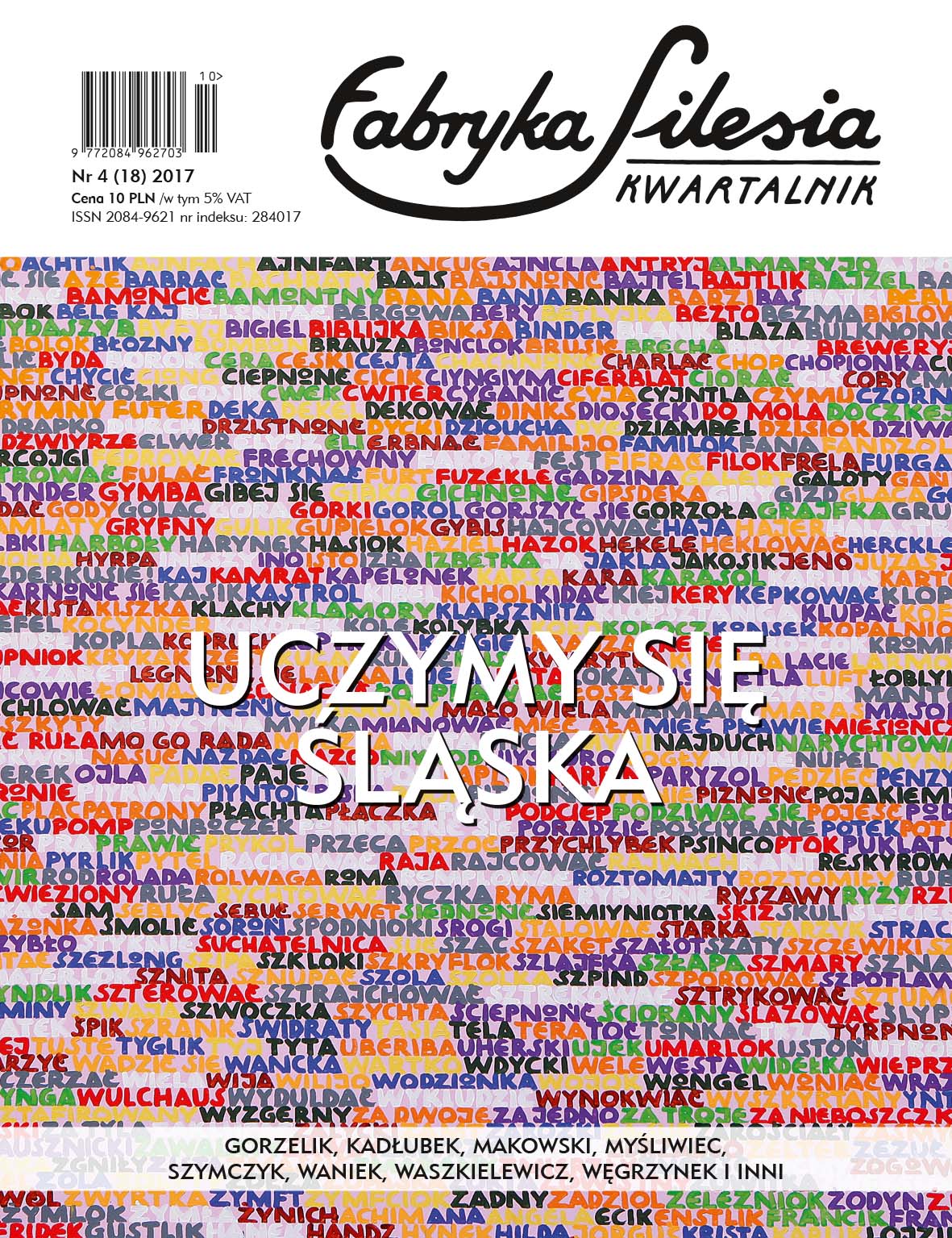
DAWID SMOLORZ in conversation with RAFAŁ BARTEK, the president of TSKN in the Opolian Silesia
More...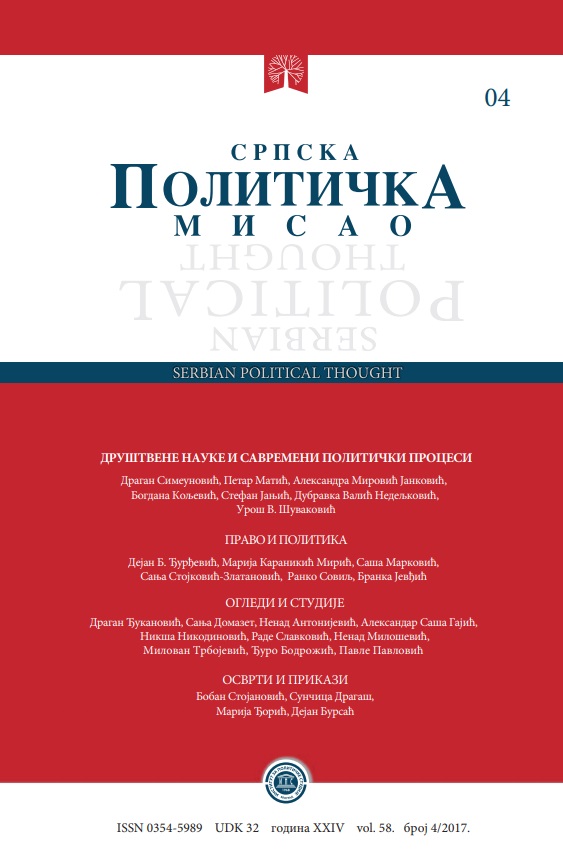
Since the beginning of 2014, political elites in the Republic of Serbia and Bosnia and Herzegovina have been announcing the broadest Serbian-Bosniak/Bosniak-Serbian dialogue. However, even three years later, the dialogue did not take place. This dialogue would imply the participation of political, but also other structures of the two countries, as well as the two peoples (religious communities, the academic community, non-governmental sector, etc.). However, the general frameworks and principles of this dialogue have not yet been conceived. In any case, they should be based on the universal values (e.g. dedication to peace, mutual respect, respect for national identity, affirmation of cohabitation, etc.), but also European standards. Along with the mentioned problems in relations between the Serbian and Bosniak people, the bilateral relations between Bosnia and Herzegovina and the Republic of Serbia have also not been improved. They are still dominantly linked to a number of open questions, mostly determined by the breakup of the former Socialist Federal Republic of Yugoslavia and the war in Bosnia and Herzegovina (1992-1995). The Bosniaks and the Serbs, as two South Slavic peoples in the west of the Balkans, are fairly depending on each other bearing in mind the ethnic composition of this region. They live together in a large part of Bosnia and Herzegovina, as well as in Serbia and Montenegro (Sandzak), in Kosovo and in Macedonia. In that sense, the improvement of relations between political, religious, academic and other Serbian and Bosniak structures would contribute to a certain degree in overcoming the extremely bad heritage of armed conflicts on the territory of Bosnia and Herzegovina, as well as some incidents in Sandzak, during the period 1992-1995 (Štrpci, Sjeverin, Bukovica, etc.). The above-mentioned dialogue should be conducted on two levels – between the authorities in Belgrade and Sarajevo, and also between the representatives of Serbs and Bosniaks from Bosnia and Herzegovina, as well as from Serbia (Sandzak). On the other hand, given the complexity of the structure of Bosnia and Herzegovina and the relations between Bosniak and Serbian ethnoelites in this country, the rapid success of the announced initiative is unlikely. Besides already mentioned, there are problems related to deep discord between the Bosniak political leaders, namely Bakir Izetbegovic (Party of Democratic Action) and Fahrudin Radoncic (Alliance for a Better Future of Bosnia and Herzegovina). In addition, the current leadership of Bosnian Croats could further aggravate the possibility of implementing potential results and agreements that would arise from the Serbian-Bosniak dialogue. The reaction of the influential international actors in the region of the Western Balkans, primarily the United States, the Russian Federation, the Republic of Turkey and the European Union (and in particular the Federal Republic of Germany) to the beginning and the range of the announced Serbian-Bosniak dialogue would be particularly indicative. In this regard, there are significant disagreements between the administration of these very important actors of the regional and world politics, from the support shown by the Federal Republic of Germany, the European Union and the United States, to the potentially less constructive role of Turkey and the Russian Federation.
More...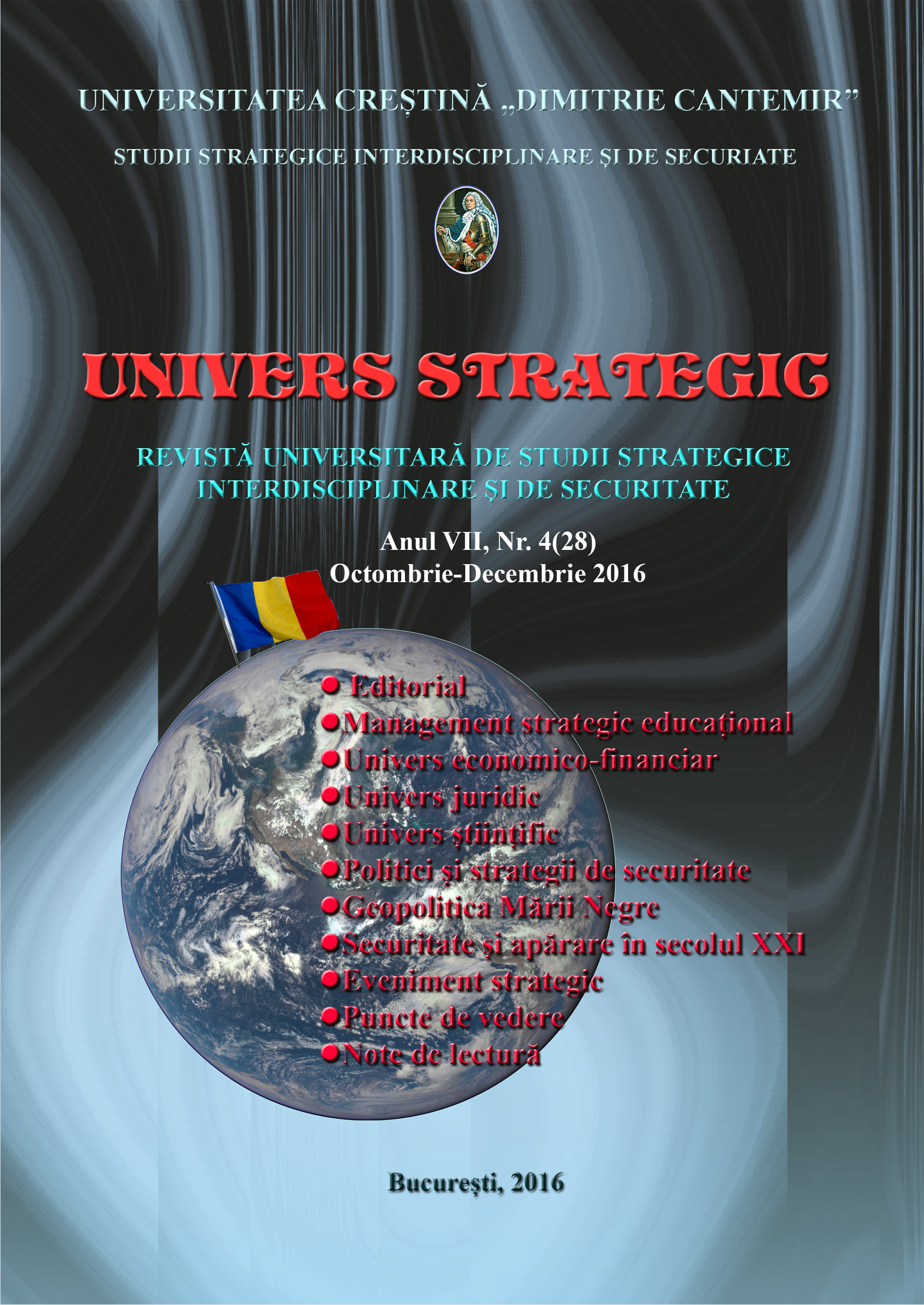
In May this year (2016) on the fence of Regal Palace was presented merits they had some Romanian citizens to other countrymen, their jewish fellows, in a troubled and controversial period of Romanian history, respectively the Second World War (1941-1944). Human gesture of these Romanian to their fellows- jewish, was considered by YAD YASHEM Institute from Israel, as the exceptional. A result of this gratefulness, YAD YASHEM Institute, those non-jew friends of jewish, awarded the medal and title "Righteous Amond Nations".
More...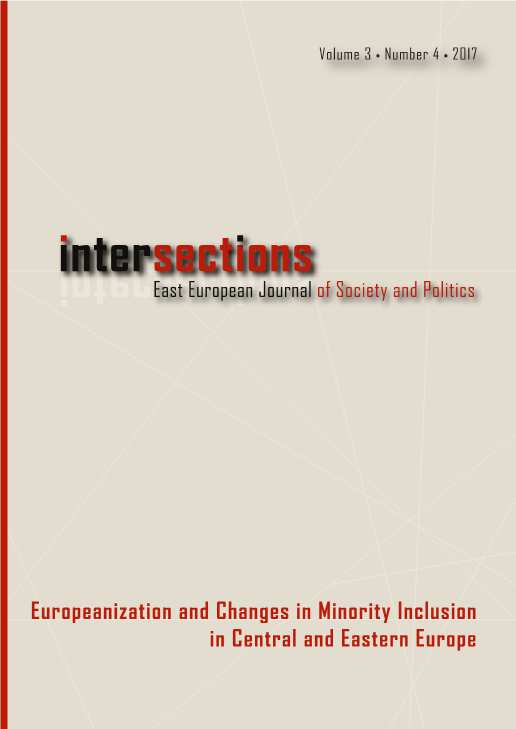


Szabolcs Pogonyi (2017) Extra-Territorial Ethnic Politics, Discourses and Identity in Hungary. Palgrave Studies in Citizenship Transitions. Cham, Switzerland: Springer International Publishing.
More...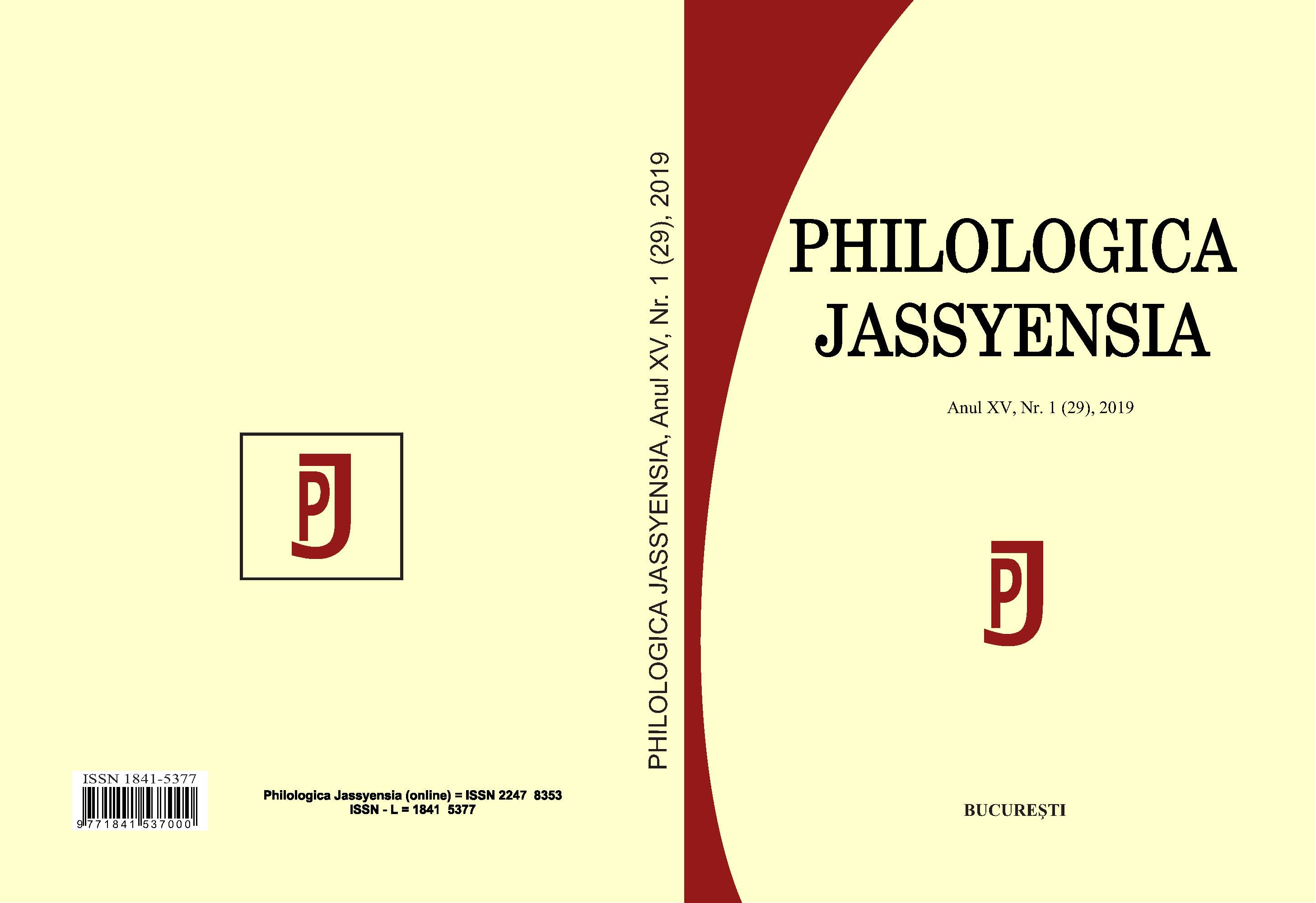
This article aims to sum up the main results of a research project made in 2016 and 2017 about the situation of 1190 Romanian migrants in Western Europe and to give an overview about the push and pull factors, transnational family structures, as well as the challenges and difficulties of the Romanian survey respondents living in Germany, France, the United Kingdom and Italy. It also considers the role of personal networks which represent an important motor of migration and constitute the main motive for the choice of a certain destination region. These migration networks lead to the construction of transnational social spaces between Romania and the destination country and have high influence in the search for housing or jobs but can also influence the integration process abroad.
More...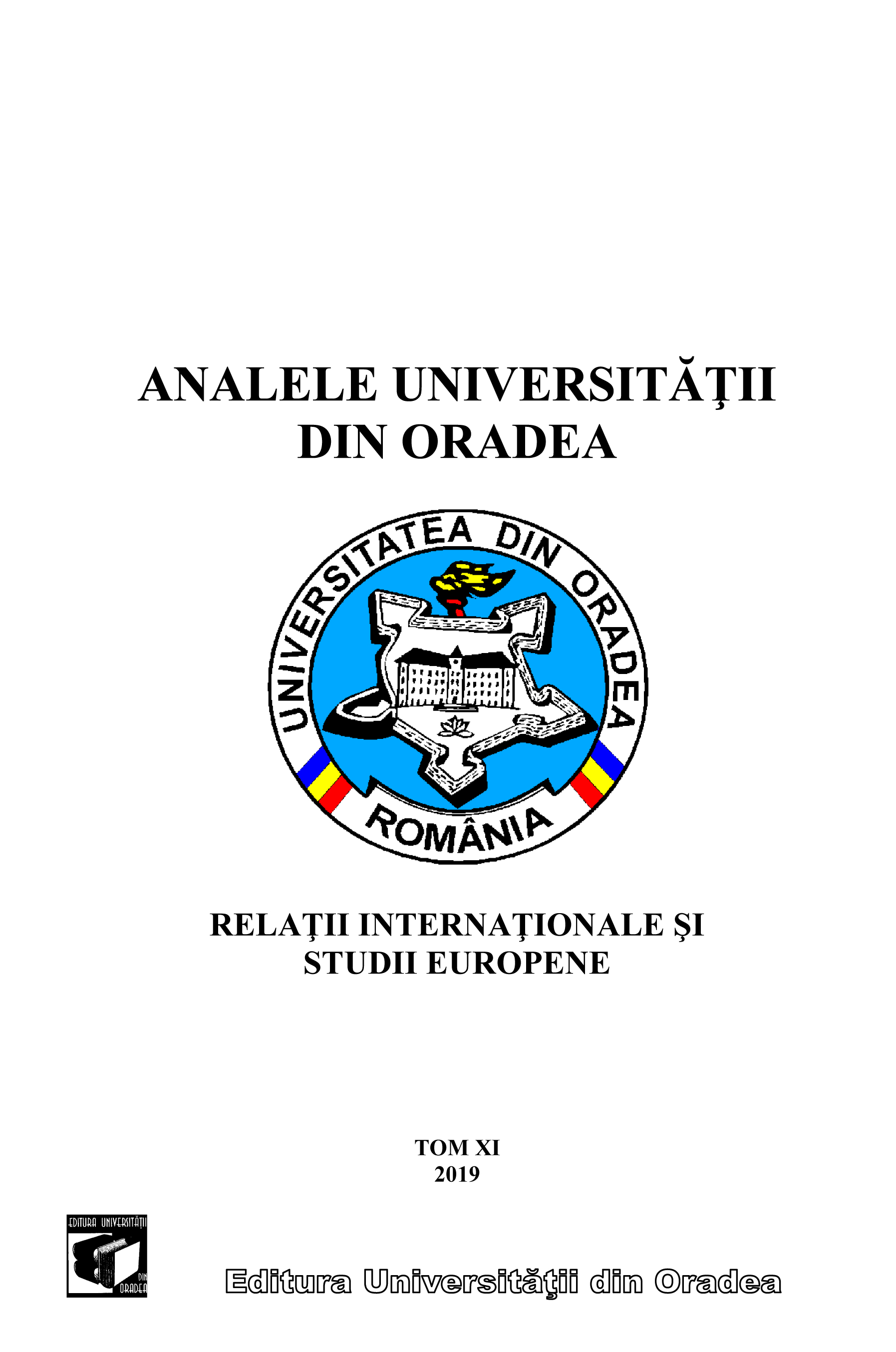
Today the term "intercultural communication" is often used to refer to thewide range of communication issues that inevitably arise within an organization composed ofindividuals from a variety of religious, social, ethnic, and educational backgrounds. In an eraof interference, intercultural communication is timely and advisable. The article analyzes therelation between communication, language and culture in the Republic of Moldova. In thisway, it is necessary to emphasize that the language is a part of culture and that it plays a veryimportant role in it, including in Republic of Moldova.
More...
The article proposes a brief presentation of the theses included in the theoretical models of migration, based on which several hypotheses have been formulated,tested through their own research. Chapter two presents the methodological aspects and results of a sociological survey based on a randomly applied questionnaire to the parishioners of the Orthodox churches "40 Saints martyrs" from Sevastia from Moncalieri and "Sfânta Cruce" from Turin, Piemonte area, aiming to identify some characteristics of the integration of Romanian migrants. in the socio-cultural environment specific to the country of destination.
More...
This article is dedicated to the problems of interethnic coexistance in contemporary European space. The author makes an attempt to analyze the scientific approaches to the defining the essence of the term „identity”, „national identity”, analyze the main peculiarities of social-political development of Ukraine in 2013-2014, Scottish and Catalan referendums and their influence on European stability.The special attention is payed to the Russian influence on political development of Ukraine; Russia’s interference into domestic affairs of the EU member states.
More...
This article examines the minority rights as foreseen in the context of the european union; presenting an overview of the major acts of the eu institutions towards the minority rights issue, as well as the steps undertaken for the incorporation of minority rights into the official documents of the union. Further on, this work will provide some insights from the case of Serbia, talking more about how these rights are implemented, while taking into consideration the role of conditionality in joining the European Union. The impact that conditionality has in nowadays developments in Serbia deserves to be further discussed, since the evolution of the political spectrum of Serbia has changed a lot after the fall of Milosevic’s regime in 2000, and the country has entered the democratization process.European union conditionality plays a major role in the minority issue as well, as the minority rights are portrayed as one of the core values of eu. In this way, the progress achieved by Serbia until now in the implementation of minority protection criteria set by the European commission will be discussed. Moreover, this topic will be narrowed down with the help of a specific case such as preshevo valley in the southern part of Serbia, and its albanian minority living there and comprising the majority of the population according to the latest census. At the same time, this case is of a particular importance considering the complicated relations between the two nations.
More...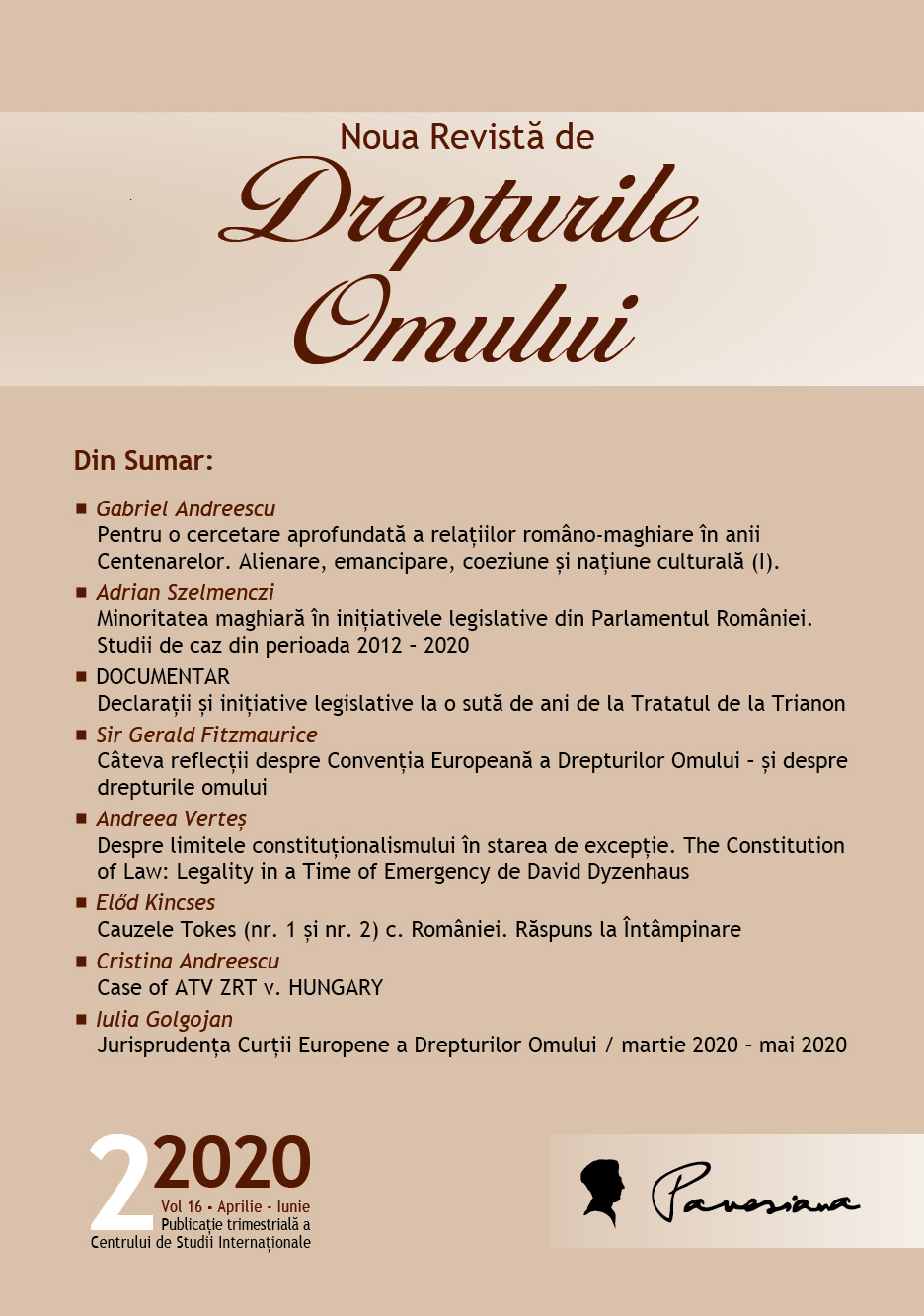
This article reviews the legislative initiatives that I flagged as impacting the rights of national minorities or the relationship between minority communities and the majority. The Hungarian minority is particularly concerned as, according to my empirical data, it appears to be a preoccupation and a target for some members of the Romanian Parliament during the last two terms. I followed the main steps of the legislative process, from the submission of the draft law to the final vote in the Romanian Parliament, and, where appropriate, its promulgation: the motivation submitted by the sponsor of the law, the opinion of the Legislative Council, the point of view of the Romanian Government and the result of the vote. My analysis has identified 13 draft laws that meet the criteria described above, 10 of which involve regulations that are more restrictive regarding the Hungarian minority than current regulations or add completely new regulations. With the exception of a single draft law (regarding the establishment of June 4th as the Day of the Trianon Treaty), all the others have been voted down by an overwhelming majority.
More...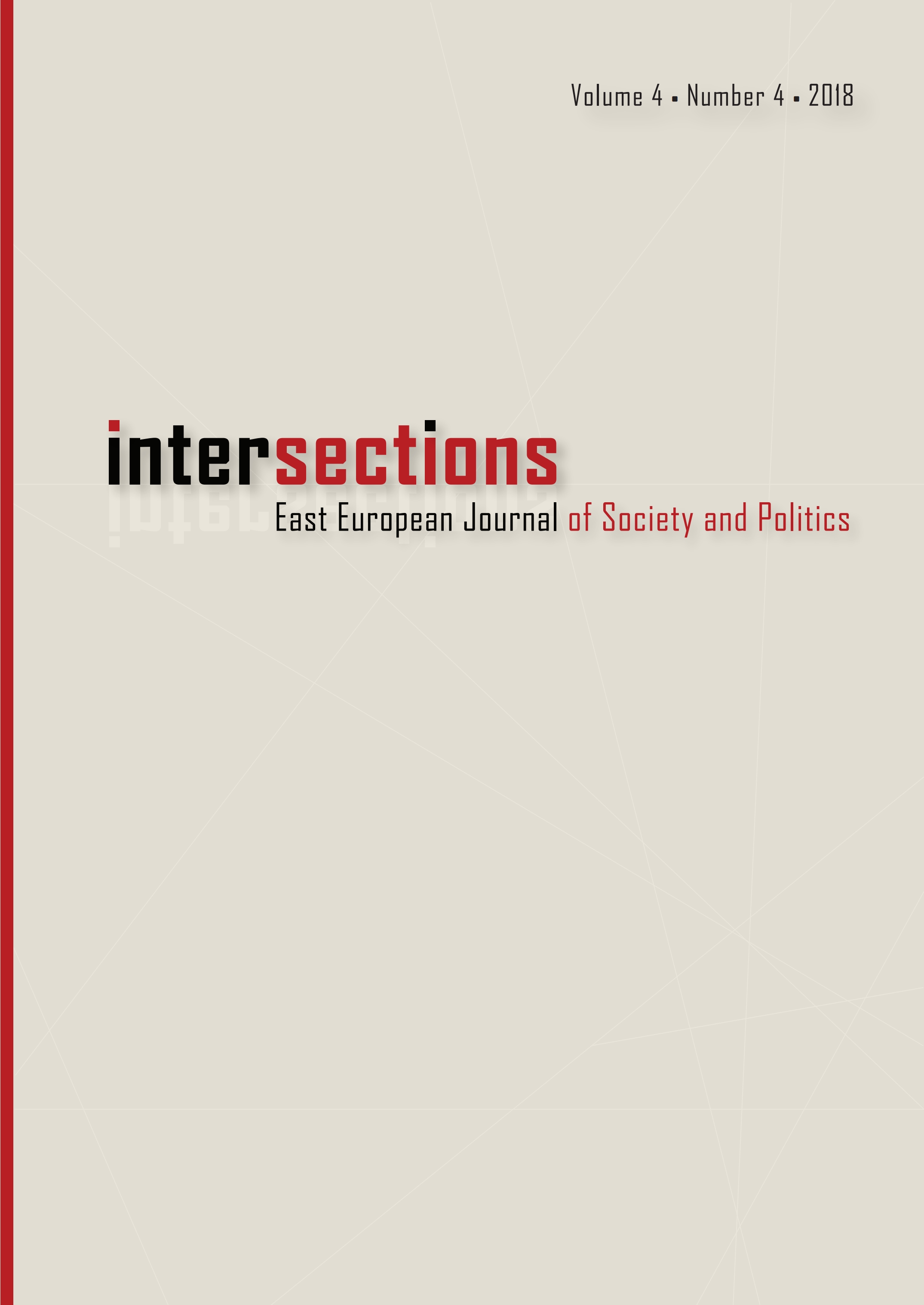
Cervinkova, Hana, Buchowski, Michal and Uherek, Zdenêk (eds.) (2015) Rethinking Ethnography in Central Europe. New York: Palgrave Macmillan.
More...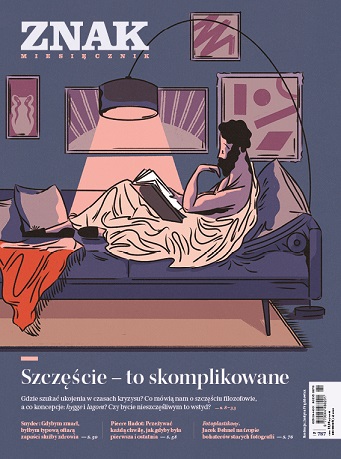
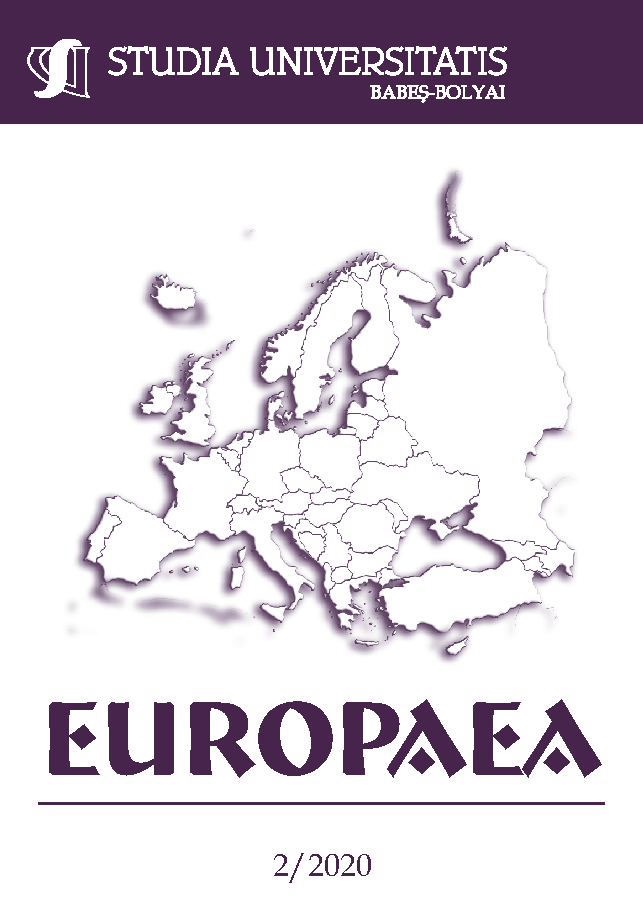
This paper aims to trace and chart the interplay between the struggle for recognition of the Genocide and the Roma civil rights movement, respectively to what extent memory, commemoration, reconciliation play a role and contribute to building a collective identity for the Roma, the Roma narrative – in which persecution, past trauma are important. The paper will also analyze the struggle for recognition and identity as a resistance to the manifestations of Antigypsyism in contemporary society. Furthermore, the paper proposes to analyze the European dimension of the Roma mobilization, respectively to what extent there is a Europe-wide movement for recognition of the Roma Holocaust, given the many Roma groups, different regional histories and the heterogeneous identity of the Roma.
More...